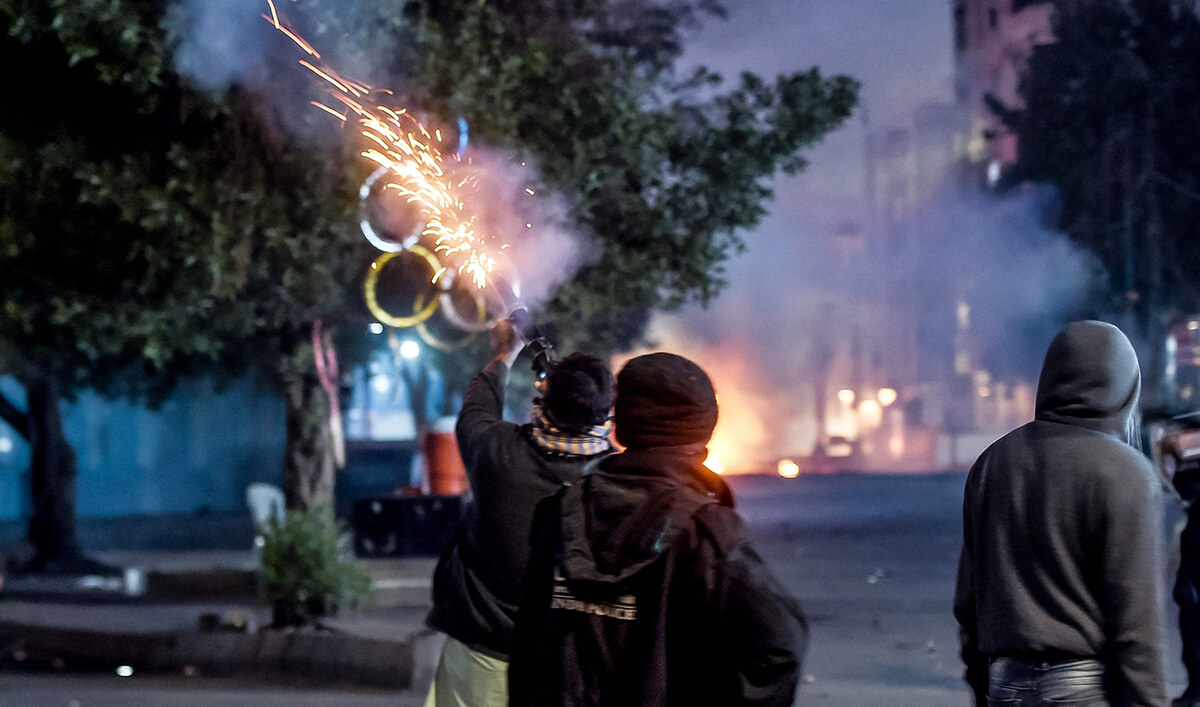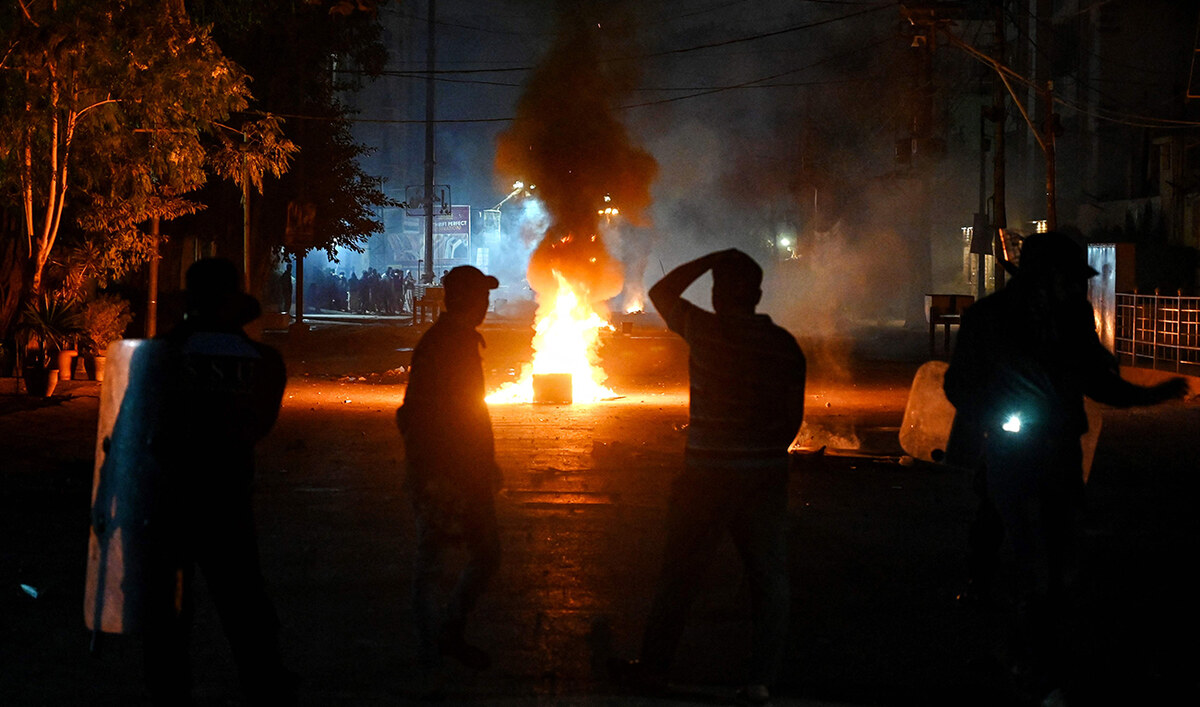ISLAMABAD: Caretaker Prime Minister Anwaar-ul-Haq Kakar on Friday called for action against militant attacks from neighboring Afghanistan, endorsed Saudi Arabia and Iran’s diplomatic rapprochement, and advocated a two-state solution as the path to enduring peace in Palestine.
Kakar achieved a historic milestone as the first caretaker prime minister of his country to address the annual United Nations General Assembly session in New York, where he tackled various global issues, spanning from extremist violence and relations with India to the escalating challenges of climate change and Islamophobia.
“Pakistan’s first priority is to prevent and counter all terrorism from and within Afghanistan,” he told representatives of United Nations member states. “Pakistan condemns the cross-border attacks … by the TTP [Tehreek-e-Taliban Pakistan], Daesh and other groups operating from Afghanistan.”
The prime minister’s statement comes against the backdrop of a dramatic spike in militant attacks in Pakistan, mainly in border regions abutting Afghanistan since the return of Afghan Taliban to power in Kabul in August 2021.
The first half of this year saw about 80 percent increase in attacks compared to the last year, according to statistics compiled by the Pakistan Institute for Conflict and Security Studies.
“We have sought Kabul’s support and cooperation to prevent these attacks,” the prime minister continued. “We are also taking necessary measures to end this externally encouraged terrorism.”

Prime Minister Pakistan Anwaar-ul-Haq Kakar speaks during the United Nations General Assembly (UNGA) at the United Nations headquarters in New York City, US, on September 22, 2023. (Photo courtesy: REUTERS)
Kakar reiterated his country’s position that peace in Afghanistan was a “strategic imperative” for Pakistan while sharing concerns of the international community with respect to Afghanistan, particularly those related to the rights of women and girls.
“We advocate continued humanitarian assistance for destitute Afghan population in which Afghan girls and women are the most vulnerable as well as the revival of Afghan economy and implementation of the connectivity projects with Central Asia,” he said.
Speaking about Pakistan’s relations with its nuclear-armed neighbor, the prime minister said his country desired “peaceful and productive” relations with all neighbors including India.
“Global powers should convince New Delhi to accept Pakistan’s offer of mutual restraint on strategic and conventional weapons,” he said, adding that Kashmir provided the key to peace between the two neighboring states.
Pakistan and India both rule parts of the disputed Himalayan region while claiming it in full. They have fought two wars over the mountainous territory and their forces regularly trade fire across a 740-kilometer (466 mile) Line of Control, which is the de facto border separating the two parts of Kashmir.
“We must counter all terrorists without discrimination including the rising threat posed by far-right extremist and fascist groups such as Hindutva inspired extremists threatening genocide against Indian Muslims and Christians alike,” he maintained.
“We also need to oppose state terrorism, address the root cause of terrorism such as poverty, injustice and foreign occupation, and distinguish genuine freedom struggles from terrorism,” he added.
The prime minister also proposed the creation of a committee of the general assembly to oversee the balanced implementation of all “four pillars of the global counter terrorism strategy.”
He also applauded the normalization of relations between Saudi Arabia and Iran while commenting on the overall strategic situation in the Middle East.
“Pakistan welcomes the progress made toward ending the conflicts in Syria and Yemen, in particular we warmly welcome the normalization of relations between the Kingdom of Saudi Arabia and the Islamic Republic of Iran,” he said.
Focusing on the Palestine issue, he mentioned continued “Israeli military raids, air strikes, expansion of settlements and eviction of Palestinians.”
“Durable peace can be established only through a two-state solution and establishment of a viable and contiguous Palestinian state within the pre-June 1967 borders with Al-Quds as its capital,” he said.
Kakar also mentioned the “age-old phenomenon” of Islamophobia, saying it had acquired endemic proportion in the wake of the September 11 attacks in the United States and was manifested in the negative profiling of Muslims and public burnings of the Holy Qur’an.
“The narratives advocating a clash of civilizations have done considerable harm to humanity’s progress,” he noted. “Such ideas have bred extremism, hatred and religious intolerance, including Islamophobia.”
The prime minister welcomed the legislation initiated by Denmark and contemplated by Sweden to ban the desecration of the Islamic scripture.
“Pakistan and the OIC [Organization of Islamic Cooperation] countries will propose further steps to combat Islamophobia, including the appointment of a special envoy, creation of an Islamophobia data center, legal assistance to victims and an accountability process to punish Islamophobic crimes,” he continued.
Discussing the climate change issue, Kakar said Pakistan looked forward to fulfilling the climate commitments made at COP28 by developed countries to provide over $100 billion in annual climate finance, allocate at least half of it for adaptation in developing countries, operationalize the loss and damage fund, and reduce global carbon emission.
“Pakistan’s triple food finance fuel challenge is a prime illustration of the impact of COVID conflict and climate on developing countries,” he said, adding Pakistan was one of the worst affected countries from the adverse impacts of climate change.
Kakar said the last year’s flood in Pakistan submerged one-third of the country, killed 1,700 people, displaced over eight million people, destroyed vital infrastructure and caused over $30 billion damage to the economy.
“We are gratified by the commitment of over $10.5 billion for Pakistan’s comprehensive plan for recovery, rehabilitation, reconstruction with resilience,” he said.
“Specific projects are being submitted to ensure timely funding … I hope our development partners will accord priority to the allocation of funds for our recovery plan which costs $13 billion,” he added.






















